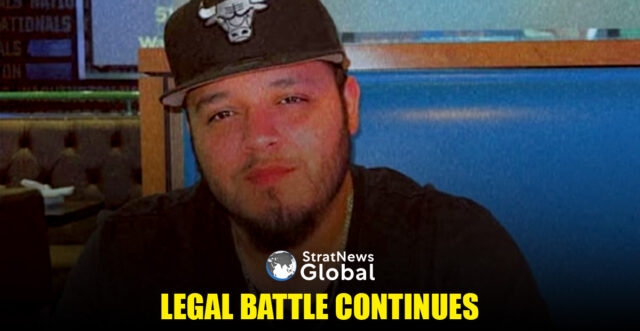Kilmar Abrego, the migrant wrongfully deported to El Salvador and seen as a symbol of President Donald Trump‘s hardline immigration stance, secured two major victories in U.S. courts on Wednesday—but will remain in custody for now on human smuggling charges.
In dual rebukes to the Trump administration after Abrego was brought back to the U.S. to face the charges, one federal judge ruled that he must be released on bail, and another ruled that authorities must give his lawyers three days’ notice before they try to deport him again to a different country.
“These rulings are a powerful rebuke of the government’s lawless conduct and a critical safeguard for Kilmar’s due process rights,” Abrego’s lawyer Simon Sandoval-Moshenberg said in a statement.
Still Behind Bars
Still, Abrego will remain in criminal custody in Tennessee for at least 30 days. His lawyers, while pushing for his release on bail, had asked that any such order be delayed given the risk that immigration authorities could swiftly detain and deport him upon his exit from jail.
Department of Homeland Security spokeswoman Tricia McLaughlin, in a statement, accused Abrego of being a member of the Salvadoran gang MS-13 and said he “will never walk America’s streets again.” Abrego denies being part of the gang.
Abrego, 29, a Salvadoran migrant who had been living in Maryland, was deported and imprisoned in El Salvador in March despite a 2019 judicial ruling that he could not be sent there because of a risk of gang persecution. That prompted Trump’s critics to argue that his administration was infringing on legal rights as it moved aggressively to deport millions of migrants living illegally in the U.S.
Abrego then challenged that deportation in a civil lawsuit before U.S. District Judge Paula Xinis in Greenbelt, Maryland. The U.S. Supreme Court in April upheld Xinis’ order that the administration facilitate Abrego’s return.
Legal Battle Continues
In June, U.S. officials brought Abrego back to the U.S. after securing an indictment accusing him of transporting migrants in the U.S. illegally as part of a smuggling ring.
Abrego has pleaded not guilty to the charges and has been held in criminal custody in Tennessee since his return. His lawyers have accused the Trump administration of bringing the charges to cover up violations of his rights.
U.S. Magistrate Judge Barbara Holmes in Nashville, Tennessee, granted Abrego’s request to be released ahead of his trial last month. But Abrego’s lawyers later asked Holmes not to release Abrego right away, citing the risk he would be detained and deported to a country other than El Salvador.
Federal prosecutors challenged Holmes’ ruling.
On Wednesday, U.S. District Judge Waverly Crenshaw rejected that challenge, writing that prosecutors had not shown sufficient evidence that Abrego posed a public safety threat or was a flight risk to justify his continued detention ahead of trial. But he said the government was entitled to another hearing over whether to detain Abrego due to their allegation that he sometimes transported children.
After Crenshaw’s order on Wednesday, Holmes said she would delay her order for release by at least 30 days.
In a simultaneous decision on Wednesday, Xinis ruled that if Abrego is released from criminal custody, U.S. Immigration and Customs Enforcement could not detain him in Tennessee. She also ruled that his immigration case must be returned to Maryland, and that he must be notified at least three days before any deportation to a third country.
On Xinis’ ruling, McLaughlin said, “The fact this unhinged judge is trying to tell ICE they can’t arrest someone who is subject to immigration arrest under federal law is insane.”
Xinis’ order did not bar immigration authorities in Maryland from taking him into custody.
(With inputs from Reuters)





